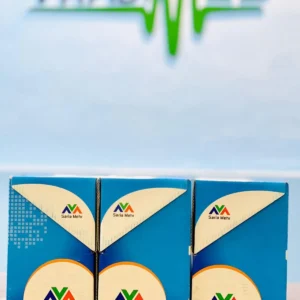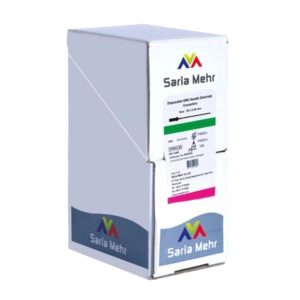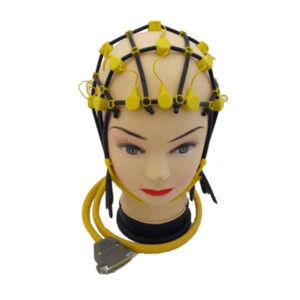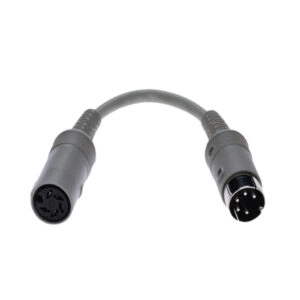NCS DICS Electrode
NCS DICS Electrode: Enhancing Nerve Conduction Studies
Nerve Conduction Studies (NCS) are an essential diagnostic tool used to assess the function of peripheral nerves. Central to the success of these studies are the electrodes used to stimulate and record nerve signals accurately. The NCS DICS Electrode, developed by [Manufacturer Name], represents a significant advancement in electrode technology, offering improved signal quality, patient comfort, and procedural efficiency. Let’s explore how the NCS DICS Electrode is revolutionizing nerve conduction studies.
Clinical Applications of NCS DICS Electrode:
The NCS DICS Electrode finds extensive use across various clinical settings and specialties, owing to its versatility and reliability in nerve conduction studies. Here are some common applications:
- Neurology Clinics: Neurologists utilize the NCS DICS Electrode for diagnosing and monitoring peripheral nerve disorders such as carpal tunnel syndrome, peripheral neuropathies, and radiculopathies. Accurate and precise recordings obtained with the electrode aid in the assessment of nerve function and pathology.
- Electromyography (EMG) Laboratories: EMG specialists rely on the NCS DICS Electrode for comprehensive nerve conduction studies as part of their evaluation of neuromuscular disorders. These studies help differentiate between nerve and muscle disorders, contributing to accurate diagnoses and treatment planning.
- Rehabilitation Centers: Physical therapists and rehabilitation specialists incorporate nerve conduction studies using the NCS DICS Electrode into their treatment plans for patients recovering from nerve injuries or undergoing neurological rehabilitation. These studies help track nerve recovery and guide rehabilitation interventions.
Key Features of NCS DICS Electrode:
- High Signal Fidelity: The NCS DICS Electrode utilizes advanced materials and design principles to ensure high signal fidelity during nerve conduction studies. Its precise construction minimizes signal distortion and interference, resulting in accurate and reliable recordings.
- Optimized Contact Area: With its carefully engineered contact area, the NCS DICS Electrode maximizes skin contact and conductivity, enhancing signal transmission and recording. This optimized contact area reduces noise and artifact, resulting in cleaner signals and more accurate measurements.
- Patient Comfort: Designed with patient comfort in mind, the NCS DICS Electrode features soft, flexible materials and rounded edges to minimize discomfort during placement and stimulation. Patients can undergo nerve conduction studies with minimal discomfort, improving overall satisfaction and compliance.
- Easy Application: The NCS DICS Electrode is easy to apply and remove, streamlining the nerve conduction study procedure and reducing patient discomfort. Its intuitive design allows for quick and efficient placement, saving time and enhancing procedural efficiency.
Advantages of NCS DICS Electrode:
- Improved Diagnostic Accuracy: By providing high-quality signal recordings, the NCS DICS Electrode enhances the diagnostic accuracy of nerve conduction studies, enabling clinicians to make more informed decisions regarding patient care and treatment.
- Enhanced Patient Experience: With its focus on patient comfort and ease of use, the NCS DICS Electrode enhances the overall patient experience during nerve conduction studies. Patients report less discomfort and anxiety, leading to better cooperation and compliance.
- Increased Procedural Efficiency: The NCS DICS Electrode streamlines the nerve conduction study procedure, reducing the time required for electrode placement and signal acquisition. This increased efficiency allows clinicians to perform more studies in less time, improving workflow and patient throughput.
Clinical Applications of NCS DICS Electrode:
The NCS DICS Electrode is used in a variety of clinical settings, including neurology clinics, electromyography (EMG) laboratories, and rehabilitation centers. It is employed in the diagnosis and management of various neurological conditions, including peripheral neuropathies, radiculopathies, and neuromuscular disorders.
Conclusion:
The NCS DICS Electrode represents a significant advancement in electrode technology for nerve conduction studies. With its high signal fidelity, patient comfort, and procedural efficiency, it enhances the diagnostic accuracy of NCS while improving the overall patient experience. Clinicians can rely on the NCS DICS Electrode to provide accurate and reliable recordings, leading to better clinical outcomes and patient care in neurophysiology practice.





